Hybrid working and the office: the data you need to know

“Through the pain and difficulties of lockdowns, we have glimpsed a new way of working and living that seems better for the individual, for society and the environment. Without innovation, we risk sleepwalking back into the ways of the past.”Jon Dweck, Founder Space32
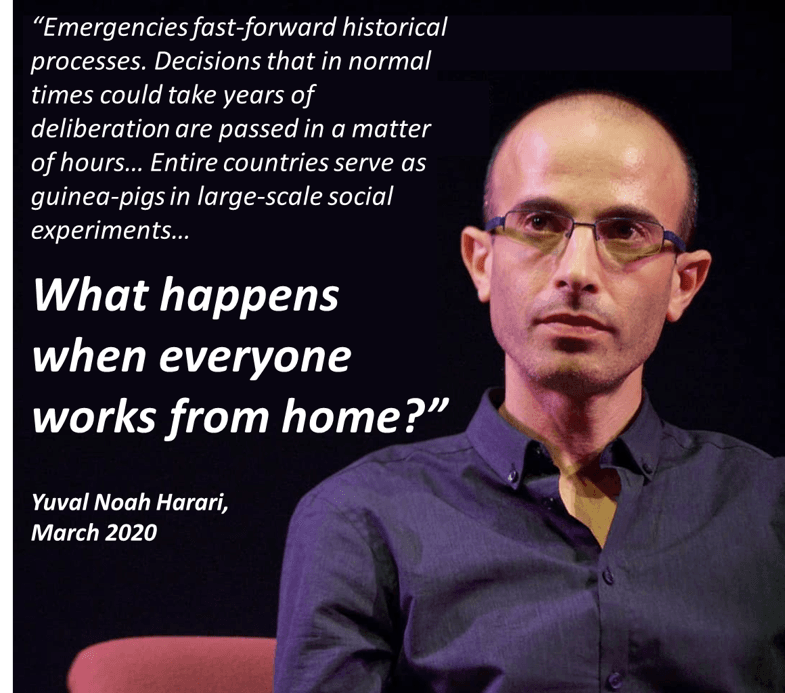
Space32 is the first marketplace for Hybrid Offices: workspaces available for 1-5 days each week.
In the dark days of March 2020, as the world attempted to come to terms with the scale and impact of Covid 19, my coping mechanism was to dream about the future and how the pandemic experience could change the world for the better.
Reading this quote, from Yuval Noah Harari, historian and author of books such as Sapiens: A Brief History of Humankind, proved the inspiration for Space32 and the concept of the Hybrid Office.
Today we have the answer to the question “What happens when everyone works from home?”
Organisations adapt and continue to function. In some ways, timing was on our side… Technology enabled a new way of working that was inconceivable even 5 years ago. We no longer need phone sets to make calls, physical servers are not required to store information, personal computers can be carried with us and set up anywhere. Even face to face meetings no longer require face to face contact.
Office worker preferences and impact on desk requirements
UK office workers want to maintain the improvements in their work/life balance and the reduced time and costs spent commuting.
More than 4 out of 5 now reject the idea of working full time in the office, with the majority wanting either 2 or 3 days a week of office-based working.
This has a dramatic impact on office usage and 72% of all desks will be empty at any given time, should the impact of the pandemic end.
The cost of those empty desks to London businesses is £21bn each year.
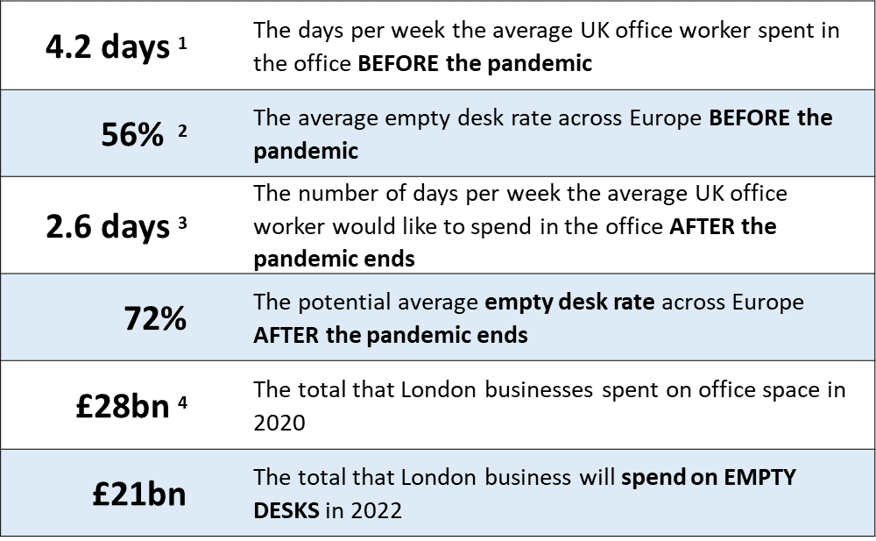 Sources: 1 2019 ONS data from 2019, 2 British Council for Offices report in 2018, 3 Independent research conducted by Opinium November 2020, 4 Data from Costar 2020
Sources: 1 2019 ONS data from 2019, 2 British Council for Offices report in 2018, 3 Independent research conducted by Opinium November 2020, 4 Data from Costar 2020Business leaders’ opinions on hybrid working and office needs
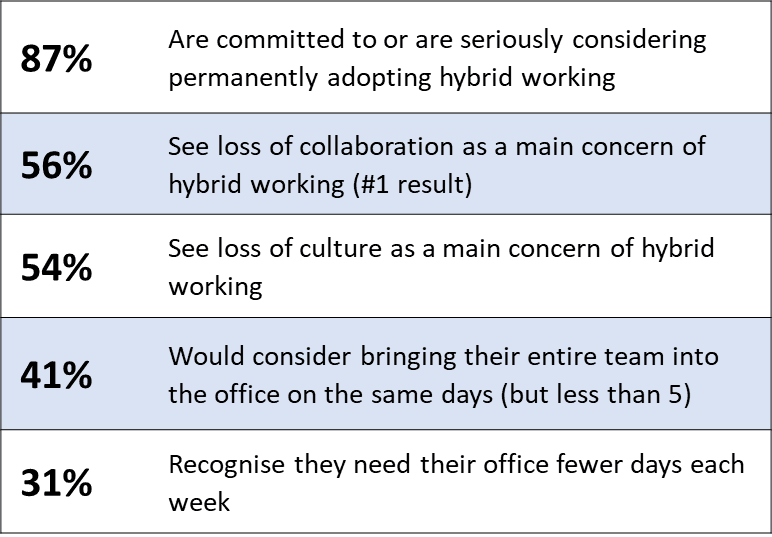 Source: Phone based survey of 138 central London business leaders, January 2021. Average 35 UK-based office staff.
Source: Phone based survey of 138 central London business leaders, January 2021. Average 35 UK-based office staff.A substantial majority of business leaders want to implement hybrid working and state work/life balance improvements (79%) and reduced commuting (70%) as the main benefits of hybrid working.
They have learnt that remote working can improve productivity and recognise that hybrid working enhances talent attraction and retention.
But they fear the negative implications on company culture, collaboration and training. They also worry about those unable to work from home comfortably.
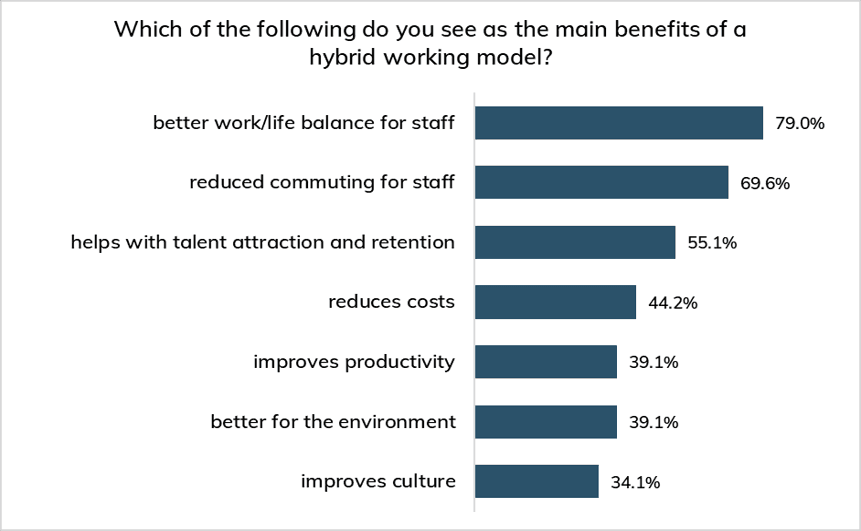
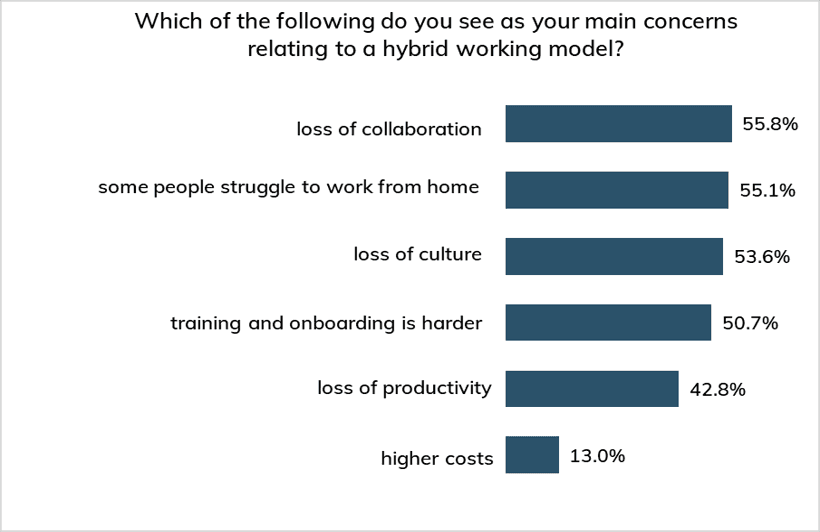
As of January 2021, 1 in 3 central London business leaders recognise they need the office fewer days each week.
That proportion of office users currently constitutes nearly £9bn in annual spend on office space in London alone.
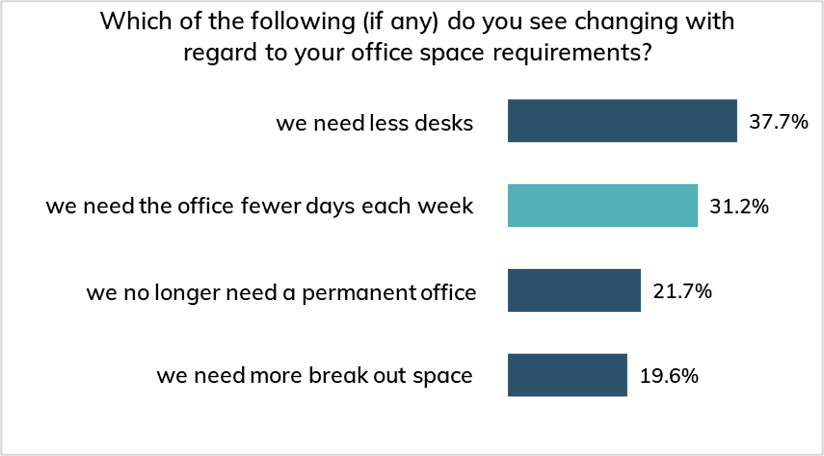
Sustainability considerations
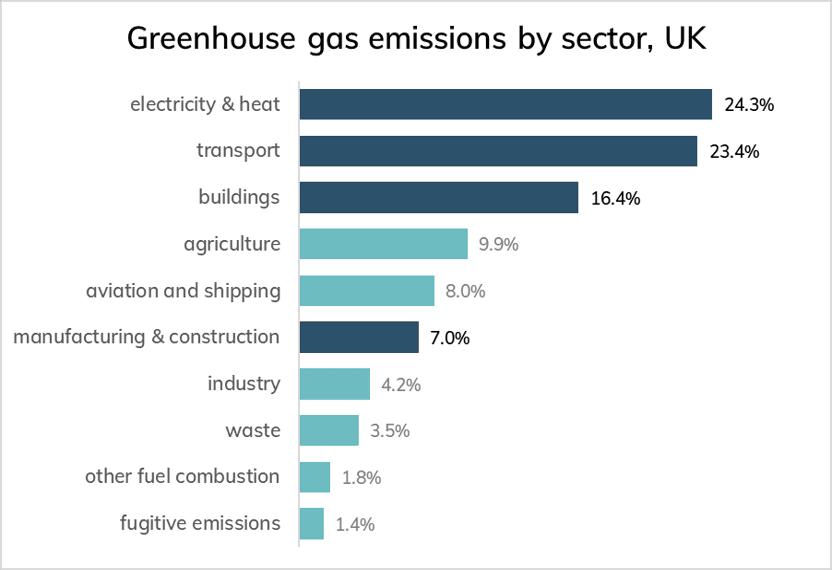 Source: Ourworldindata.org 2016 data
Source: Ourworldindata.org 2016 dataThe main contributors to the negative environmental impact of office working are:
- the energy required to power and heat an office
- the energy required to sustain daily commuting
- the construction of office buildings and the infrastructure required to sustain daily commuting.
64% of total UK greenhouse gas emissions are produced by power and heat, transport and buildings, all impacted by office usage.
In 2022, Space32 are committed to further research into the positive impact of the Hybrid Office concept on the environment.
What is the future of the office?
An office is no longer an automatic business requirement.
A major purpose is to improve productivity by enabling businesses to preserve culture and maintain effective collaboration.
It should also be cost effective and minimise environmental impact.
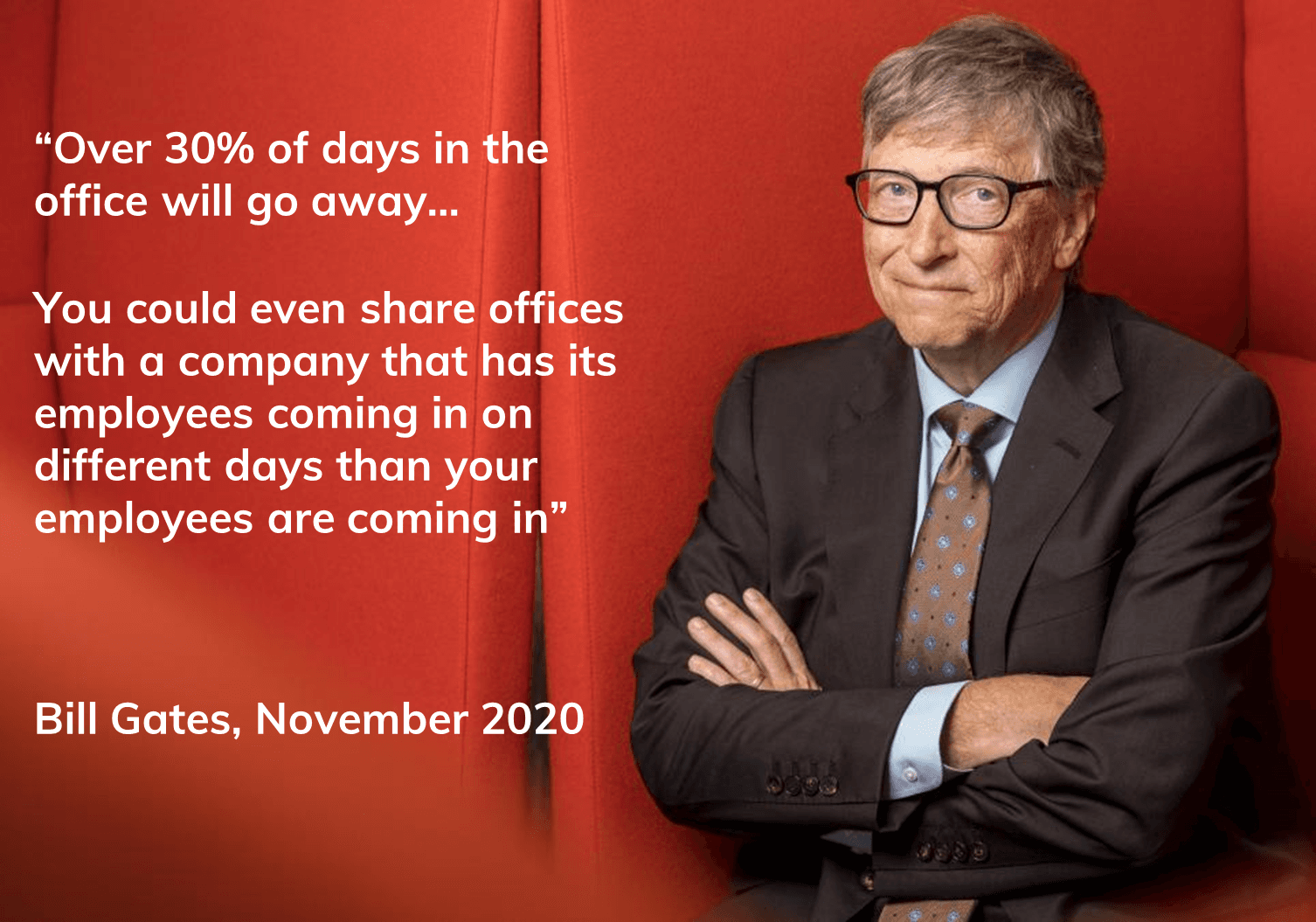
Businesses have the following four options
- A full-capacity, full-time office where staff come when they want or are needed
- An entirely remotely-working team that hires meeting and working space only when required
- A part-capacity, full-time office where staff are rotated or split
- A Hybrid Office of up to full capacity, only available on the days needed each week
The Space32 mission
We want to change the way the world works for the better
